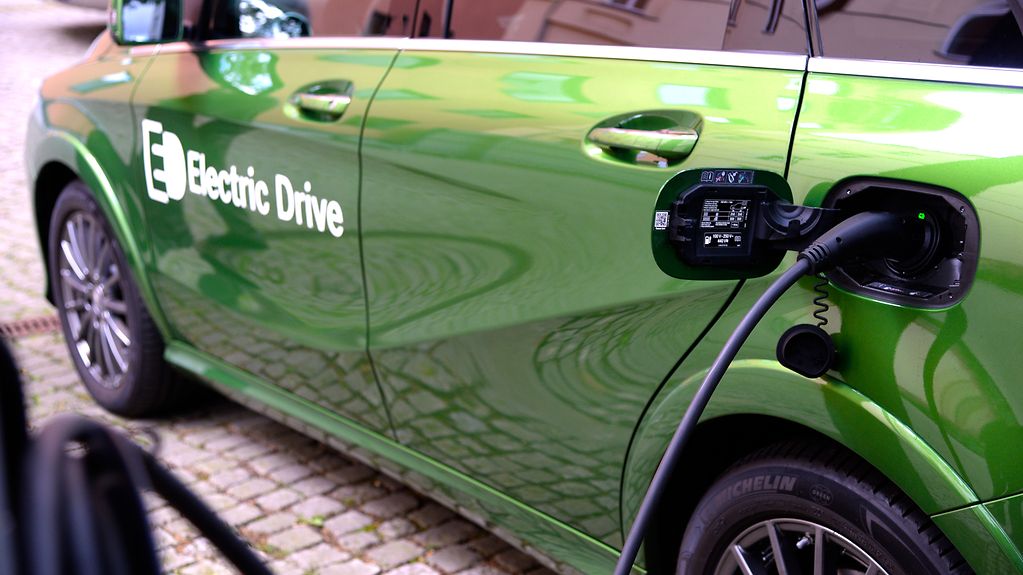Concerted action for mobility
Politicians and industry representatives agree that sales of electric cars must be boosted. Electric mobility is to take off properly and become part of our everyday lives. That is the key outcome of the top-level meeting on mobility at the Federal Chancellery.
2 min reading time

Over the next two years, the number of public charging stations is set to rise to 50,000.
Photo: Bundesregierung/Stutterheim
With higher rebates for purchasers of electric cars and more charging stations, the German government intends to ensure that electric cars manage to achieve a breakthrough onto the mass market. Here is a round-up of the decisions made at the top-level meeting with representatives from the realms of politics, the automobile industry and trade unions.
Higher rebate for purchasers of electric cars
The rebate for purchasers of electric cars, or environmental bonus, is not only to be increased – the entire scheme is to be extended again. The plan is for the bonus to be paid until the end of 2025 – rather than the end of 2020 as previously intended. This is to give companies and consumers security on which to make long-term plans.
Specifically, the bonus paid to purchasers of purely electric cars with a list price of under 40,000 euros will rise from 4,000 euros to 6,000 euros, while the bonus paid for cars with a list price of over 40,000 euros will be 5,000 euros. This should make it possible to offer the rebate to purchasers of another 650,000 to 700,000 electric vehicles. Half of the bonus is shouldered by industry and half by the German government.
More charging stations for electric cars
Parallel to this, the German government intends to put in place one million public charging stations as laid out in its Charging Structure Masterplan, so that ten million electric cars can drive on German roads by the end of the next decade. The automobile industry has agreed to provide some 15,000 public charging stations by 2022. Over the next two years the number of charging stations with public access is to rise to around 50,000. There are currently around 21,100 public charging stations for electric cars. Under the government’s climate action plan, one million public charging stations are to be installed by 2030. More support is also to be given to individuals installing private charging points.
Automated driving
Germany is to be a trailblazer in automated and networked driving. Pro-innovation legal and technical frameworks are to be put in place swiftly and automated driving functions introduced on the roads.
Alternative engine technology
The German government is preparing a comprehensive hydrogen strategy. It is to be crucially important for the future of mobility.
The concerted action for mobility: In March 2019 the coalition committee decided to launch the concerted action for mobility. The top-level talks with representatives from the world of politics, industry and the trade unions aim to identify the need for political action and develop a sustainable strategy for mastering the radical challenges facing Germany as a centre of the automobile industry.